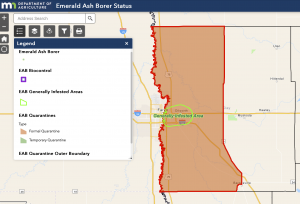Funding for student organizations has decreased this school year due to the drop in enrollment and an increase in budgets for larger organizations.
Some of the organizations that requested more money were Concordia Entertainment Commission, the Student Government Association, Homecoming and Orientation. According to Nathalie Rinehardt, assistant director of student involvement, these increases are mostly due to rising costs everywhere.
“If you want to bring in a good lecturer, you have to be willing to pay,” Rinehardt said.
The funding for most student organizations—with the exception of Homecoming, which is also funded by the alumni office—comes from the $210 student activity fee included with each student’s tuition. The money from the fee goes to cover a variety of charges.
According to Concordia’s website, funding is first given to select auto-disbursements such as the newspaper readership program (which pays for the USA Today, The Forum and the Star Tribune), residence hall programming, funding for the Olson Forum Fitness Facility and payments to MATBUS and Doyle Cab.
After the auto-disbursements, funding is then given to Campus Entertainment Commission, Student Government Association, Homecoming, Orientation, Campus Ministry Commission and Campus Service Commission. These groups have a yearly budget.
Finally, individual student organizations can apply for funding at several points throughout the year. According to Rinehardt there is approximately $60,000 available for funding student organizations, which is down about $40,000 from last year. Rinehardt said that this information has been given to the leaders of student organizations.
“We’ve had to be up front that we are working with less money,” she said.
Jocelyn Fetsch, commissioner of the Student Involvement Council, which is in charge of approving funding requests, gave some advice to student organization leaders.
“We challenge them to be cost-effective in publicity and running their organizations,” Fetsch said.
Some student organizations are already planning for reduced budgets. One such group is the Foam Weapon Fighting Club, led by President Niki Wagner. They have already cut one trip from their plans this year.
“The downside of the small amount of funding is that we’re nervous that if we apply for things now that we’d like to go to, we won’t be able to go to events later in the year,” Wagner said. “We’re really having to pick and choose what events we want to go to.”
She also explained that they want to “open up funding for other groups” as well, by using less of the funding themselves.
In addition to reducing costs by cutting trips, the Foam Weapon Fighting club cuts costs by using only word of mouth to advertise their organization.
“We have no advertisements whatsoever, but each year our club gets about 20 new people,” Wagner said. She attributes this to the openness of the club’s members and the fact that they practice in the middle of campus.
Another student organization is taking a different approach to cutting costs through fundraising. Laura Gonshorowski, executive chair for Dance Marathon, said her club has planned fundraising events to raise money for their event in March. These include a 50/50 raffle where the winner and Dance Marathon each get half of the money raised, a button sale, and selling tickets to the “It’s a Wonderful Night” event held each year at West Acres. During this event, the mall opens for a few exclusive hours with special activities and sales for those who purchase tickets.
Gonshrowski suggested that other student organizations should “try to look elsewhere, because the Fargo-Moorhead area is really giving.”
Because funding requests are submitted at intervals throughout the year, it is more likely that money will run out during spring semester. This could happen if the requests eventually add up to the total amount of funding available. If that were the case, Rinehardt explained that the Student Involvement Council could find funding in a few other places.
These include an emergency response fund and the Special Projects and Initiatives Fund, both of which would require approval from the Student Affairs Committee.







Be First to Comment